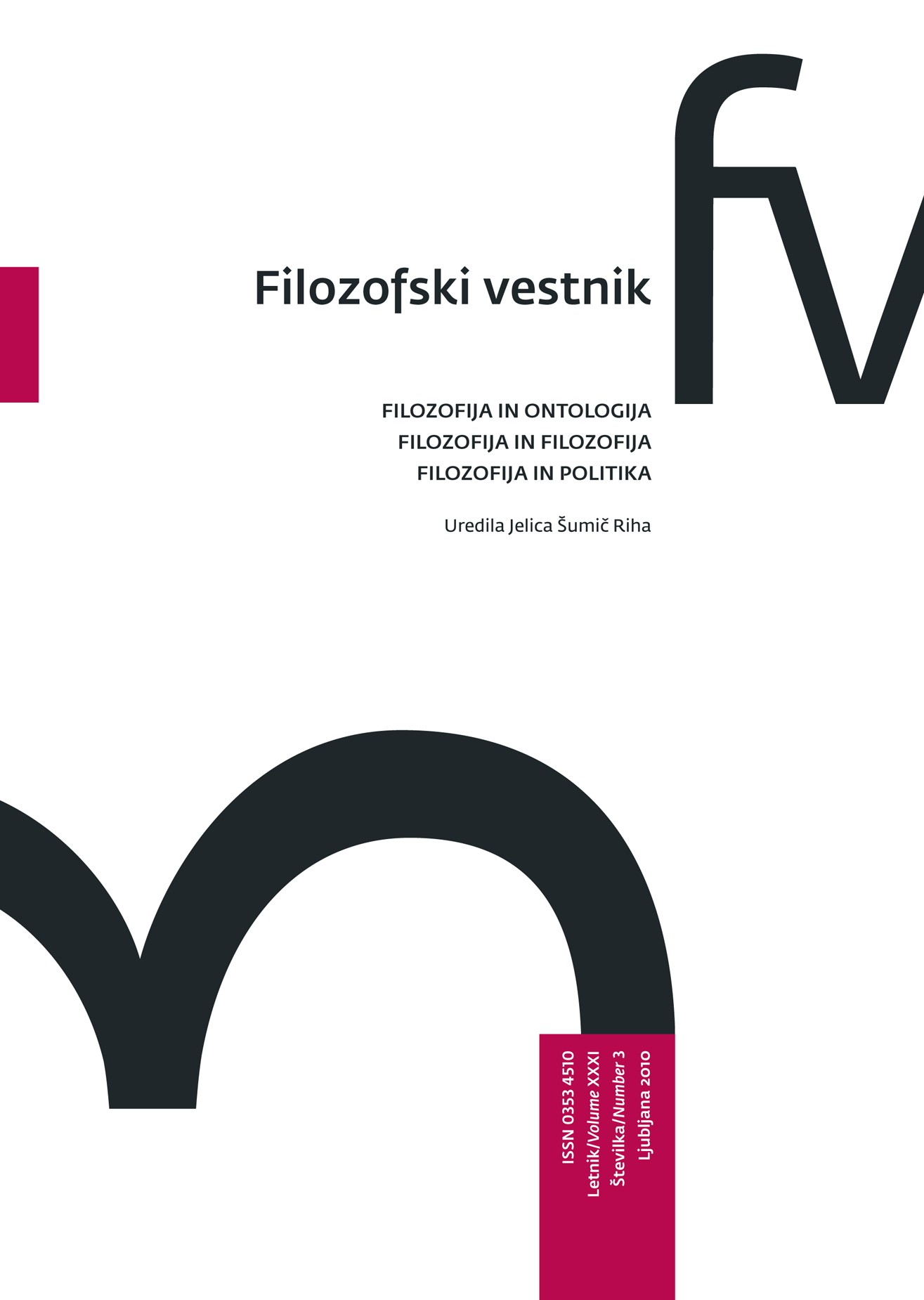Badiou, Kant in materializem ideje
Ključne besede:
Badiou, Kant, komunistična hipoteza, transcendentalna dialektika, ideje uma, materializemPovzetek
Izhodišče prispevka je, da se Badioujeva »filozofija pod pogoji« uspe izogniti dialektiki teorije in prakse, objektivnega in subjektivnega v tisti meri, v kateri operira z Idejo. Idejo, ki jo uvaja Badioujeva filozofija pod pogoji, razume prispevek kot znamenje nastopa novega materializma. Anticipacijo tega novega materializma vidi prispevek v Kantovem materialističnem obratu Ideje, ki ga vsebuje njegov nauk o idejah. Jedro tega nauka razume prispevek kot hipotezo, da je Ideja delovanje misli, aficirane s »stvarjo misli«, v danem svetu, »stvar misli« pa je točka realnega, v kateri se misel šele vzpostavlja kot misel, ki pa je hkrati misli zunanja in nanjo ireduktibilna.Prenosi
Podatki o prenosih še niso na voljo.
Prenosi
Objavljeno
2016-03-15
Kako citirati
Riha, R. (2016). Badiou, Kant in materializem ideje. Filozofski Vestnik, 31(3). Pridobljeno od https://ojs.zrc-sazu.si/filozofski-vestnik/article/view/4498
Številka
Rubrike
Filozofija in filozofija
Licenca
Avtorji jamčijo, da je delo njihova avtorska stvaritev, da v njem niso kršene avtorske pravice tretjih oseb ali kake druge pravice. V primeru zahtevkov tretjih oseb se avtorji zavezujejo, da bodo varovali interese založnika ter da bodo povrnili morebitno škodo.
Podrobneje v rubriki: Prispevki





